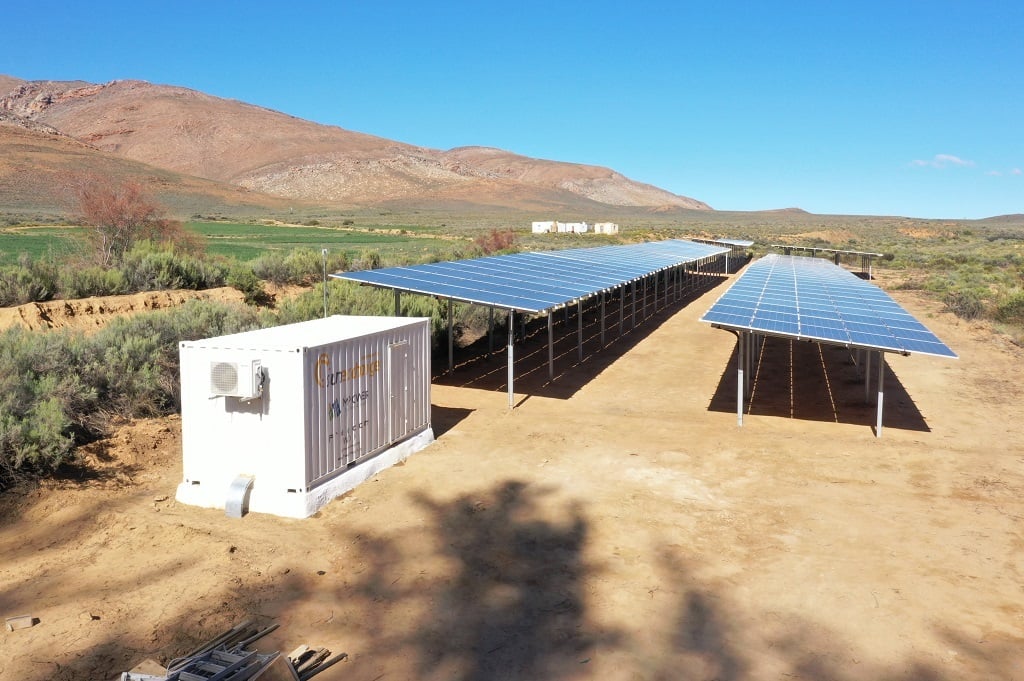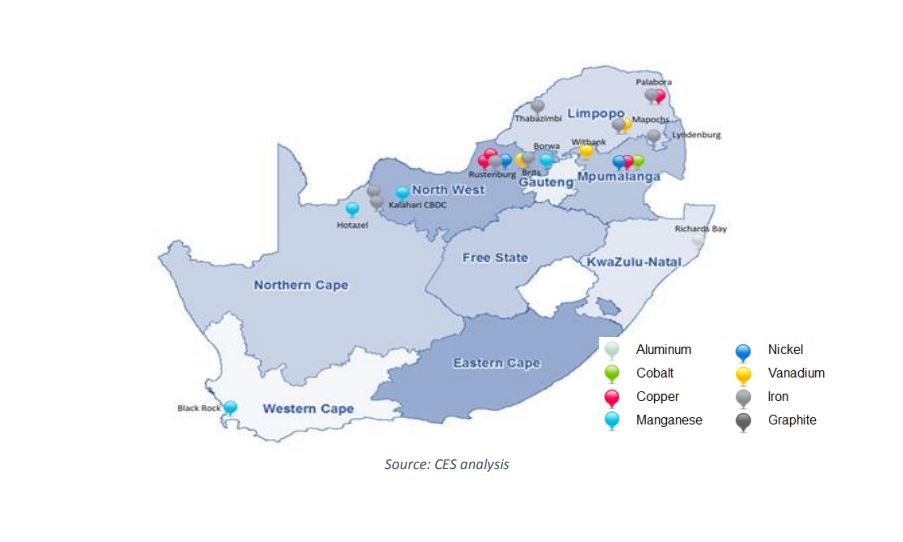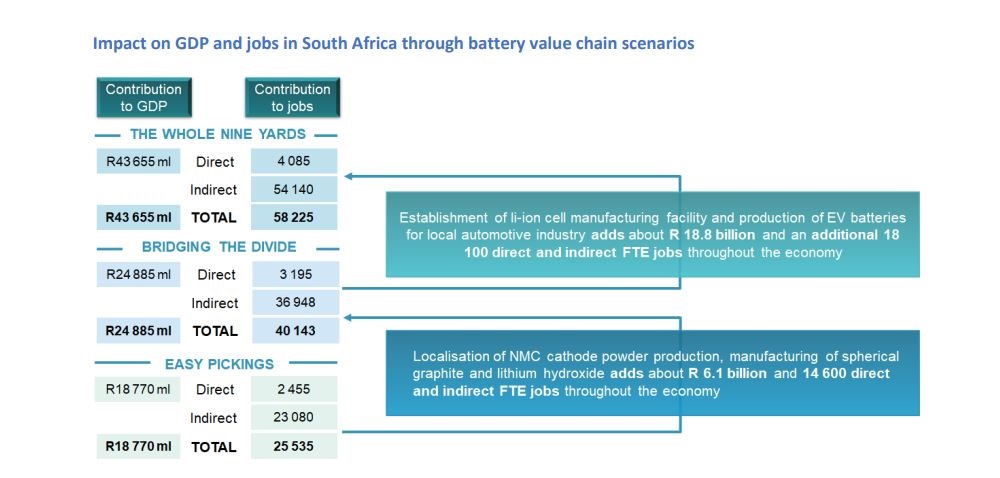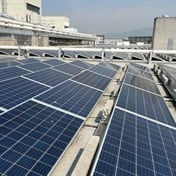
- With resources like nickel, manganese, copper and vanadium, South Africa can be a major player in the global battery value chain.
- Roughly 58 000 jobs in the battery value chain could be created in South Africa, an analysis commissioned by the World Bank shows.
- The electric vehicles sector is expected to drive growth in South Africa's battery storage market.
- For climate change news and analysis, go to News24 Climate Future.
In the best-case scenario, close to 60 000 jobs could be created if South Africa pursues battery production, an analysis commissioned by the World Bank shows.
The South Africa & Southern Africa Battery Market & Value Chain Assessment Report, compiled by Customised Energy Solutions (CES) on behalf of the World Bank, was published last week. The study was initiated in early 2021 and is aligned with the Integrated Resources Plan of 2019, which indicates an increased deployment of renewables and decommissioning coal power plants.
It noted that the load shedding challenges had supported a strong business case for "utility-scale" energy storage solutions that complement the rollout of renewables.
The analysis projects that South Africa's battery storage market could grow from 270MWh in 2020 to 15 000 MWh by 2030 in the best-case scenario. Much of this growth would be attributed to the electric vehicles market. The development of the electric vehicles industry is one of the target areas of the R1.5 trillion just energy transition investment plan.
The analysis noted that apart from electric vehicles, the shift toward renewable energy is also a strong motivator for South Africa to consider developing lithium or vanadium battery value chains.
South Africa and the rest of the southern Africa region are "well-endowed" with many of the minerals that are required for lithium-ion battery manufacture, the report indicated. For example, nickel, manganese and vanadium are already being mined in South Africa.
The country's main battery materials are manganese and vanadium, which are in "plentiful supply," the report indicated. "South Africa is the world's third-largest producer of vanadium with an annual production of approximately 8 000 tons, which accounts for about 7% of world production," the report read.
Other battery minerals like nickel and cobalt can be extracted as by-products from platinum group metals mining. "South Africa is also among the top 15 producers of both nickel and cobalt, although the volumes are small compared to other major global producers," the report read.
However, South Africa does not have significant lithium and graphite reserves. Neither does the country have bauxite reserves- and therefore imports alumina for its aluminium smelters.
READ | Nick Hedley | How South Africa can become a battery-manufacturing powerhouse
Possible activities in the battery value chain include minerals beneficiation, battery pack assembling, cell manufacturing and Battery Energy Storage System (BESS) integration (which relates to storing power that is generated from solar PV).
In developing value chains, there will be positive knock-on effects for job creation and GDP growth.
Across three scenarios, the analysis shows how many jobs would be created and the contribution to GDP growth.
The Easy Pickings scenario – largely focuses on investing in minerals beneficiation and BESS integration in the short term or by 2022. It could create 2 500 direct jobs and 23 000 indirect jobs and contribute R18.8 billion to the GDP.
To support this scenario, the report recommended that South Africa increase the deployment of renewable energy as this would also help secure climate finance, and introduce a beneficiation policy for battery minerals and establish a competitive battery testing and certification facility.
The Bridging Divide scenario – focuses on leveraging regional supply chains to build lithium batteries and would apply for a five-year period. It could create an additional 14 600 jobs and add R6.1 billion to the GDP.
To support this scenario, it is recommended that there be a regional minerals beneficiation hub established and that South Africa hold bilateral trade discussions with other countries with battery mineral reserves, such as Zimbabwe, Mozambique, Tanzania, the DRC and Zambia. It is also suggested that there be higher specifications for local content in public-sector energy storage tenders.
The Whole Nine Yards scenario – focuses on local cell manufacturing and integration with the electric vehicles sector. This scenario is more long-term in nature, with a 10-year timeline. It would create an additional 18 100 jobs and add a further R18.8 billion to the GDP.
Among the recommendations for this scenario is to have policy for the local automotive industry to take into account electric vehicle components production, which includes batteries and also to stimulate demand for electric vehicles by introducing electric buses. It also recommended a feasibility study on a possible BESS special economic zone (SEZ), which could be within an existing SEZ.
READ | Minerals Council wants to climate-proof mining, but coal won't disappear just yet
South Africa's mining industry eyes opportunities for its minerals for batteries, in support of the greater just energy transition. Safeera Loonat, partner and head of energy and natural resources at KPMG, similarly noted that in the past, commodities like coal and gold were the main focus area for mining, but minerals like cobalt will become increasingly important as demand for battery storage solutions pick up.
There is especially an opportunity for South Africa to develop beneficiation capacity that would create jobs instead of just exporting raw minerals. Zimbabwe and Namibia are examples of countries seeking to develop processing and refining industries specifically for battery minerals.
Loonat emphasised that beneficiation is where greater value can be derived.
The report makes broader recommendations on beneficiation or refining of battery minerals. It proposed minerals like lithium and cobalt from other African countries be included in plans for a regional beneficiation hub.
The report also calls for the purposeful development of a battery value chain and establishing a directorate within the Department of Trade, Industry and Competition, focused on the battery value chain.
A training programme should be established for the battery industry and the Department of Science and Innovation should consider establishing a research programme on energy storage systems, the report indicated.




 Publications
Publications
 Partners
Partners














